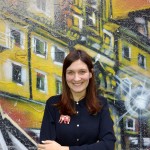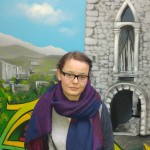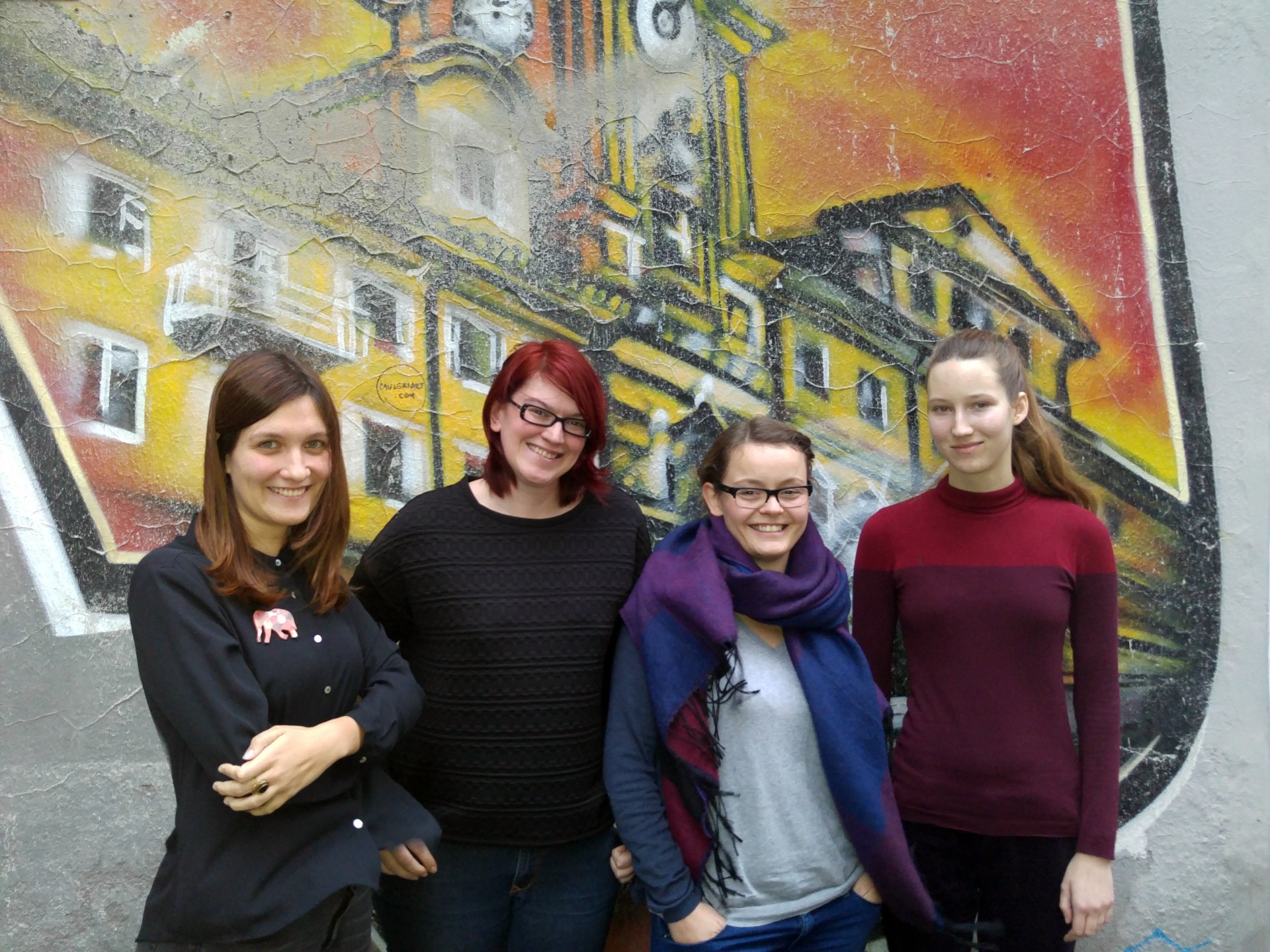We spoke with Doris, Katarina, Marinella and Tihana, members of the PaRiter organisation, and we learnt about what they do, and how they see the European Capital of Culture and their place in it.
The idea of starting PaRiter was born out of a project at the Centre of Technical Culture in Rijeka, where Doris and Katarina first met. In their conversation, they realised they share a desire to be active participants in society, which Marinella and Tihana could also relate to.
They pointed out that their intention was not to target a single group of end users or a single social group, but to work towards the improvement of human rights on a larger scale. Incidentally, the organisation’s members happen to be exclusively female, so women’s rights have taken precedence.
The public can very easily attach negative connotations to activism, but our collocutors assured us that they haven’t experienced anything of the sorts. “At least not until the moment I tell somebody that we are dealing with women’s rights or the right to abortion”, said Marinella.
One of the goals of our organisation is to break up the centralised pattern in the system of informing the young people on their reproductive rights. This is the area where we encounter great resistance.
Since we touched upon such topics, we had to ask them on their views on tolerance. Myth or reality?
Tolerance is actually indifference in disguise. Everybody is tolerant as long as there is nobody to provoke them. Which is not tolerance.



 They think that society invests too little effort in working with young people, and this is something they are trying to change. However, they emphasise that activism must not exist for its own sake, which can easily happen. Lobbying activities are a component of a democratic society and we must not confuse them with politics. Neither PaRiter nor our collocutors have anything to do with politics, but say that they strive to influence it, to direct their actions toward the decision makers and to change political conditions.
They think that society invests too little effort in working with young people, and this is something they are trying to change. However, they emphasise that activism must not exist for its own sake, which can easily happen. Lobbying activities are a component of a democratic society and we must not confuse them with politics. Neither PaRiter nor our collocutors have anything to do with politics, but say that they strive to influence it, to direct their actions toward the decision makers and to change political conditions.
Since their scope of work does not include commercial products, when they need funding for a project or an activity, they depend on the funds awarded by various tenders and grants, and the work our collocutors perform is mostly volunteer work. Partnerships with other local organisations helped them to get on their feet and start functioning, which includes plans for programmes of several years.
European Capital of Culture is such a programme, so we asked our collocutors what they think about the initiative and how they see the Rijeka in this context.
Since Katarina has moved to Rijeka from Ljubljana, the first association that comes to her mind when somebody mentions European Capital of Culture is not positive. She says she is always reminded of Maribor 2012. In her view, Maribor was the European Capital of Culture in name alone, while Rijeka, along with other three candidates, is focused on the process of change and development, which in itself is positive.
Doris, Marinella and Tihana agree, and say that it is difficult to objectively judge which city has a more comprehensive vision because they are more familiar with Rijeka than with the other cities, and observe the situation from that perspective.
Katarina doesn’t view the European Capital of Culture as an opportunity for PaRiter, but thinks it is a definite opportunity for other culture-oriented organisations and institutions, even though they see the potential of linking the culture with human rights. All our collocutors agree that, although such initiatives are usually centralised and are more about promotion (of the EU in this case), this initiative is actually welcome in Croatia, considering the current situation. However, they fear whether it would be well implemented, regardless of which city wins the title of the European Capital of Culture.
As for the implementation, they find that everybody lacks information on the things happening around us, and that an average person won’t care for going through the data and spreadsheets to find out how much money has been spent so far, and what exactly was it spent on.
They share the opinion of the members of the Centre for Industrial Heritage, according to which citizens should be presented with what is happening by going out on the streets and showing them the potentially new information face to face. Public forums and presentations serve as platforms for arguments and confrontations, where only problems are ever discussed, which they do not find interesting.
Why does nobody ever talk about the mistakes and the lessons learnt?
Rijeka’s candidacy is not a waste of time and resources, even if we don’t win the title, unanimously claim Doris, Tihana, Marinella and Katarina. If the process itself helps culture and the producers, that’s good, because there is potential there and this is something we should invest in.




 They think that society invests too little effort in working with young people, and this is something they are trying to change. However, they emphasise that activism must not exist for its own sake, which can easily happen. Lobbying activities are a component of a democratic society and we must not confuse them with politics. Neither PaRiter nor our collocutors have anything to do with politics, but say that they strive to influence it, to direct their actions toward the decision makers and to change political conditions.
They think that society invests too little effort in working with young people, and this is something they are trying to change. However, they emphasise that activism must not exist for its own sake, which can easily happen. Lobbying activities are a component of a democratic society and we must not confuse them with politics. Neither PaRiter nor our collocutors have anything to do with politics, but say that they strive to influence it, to direct their actions toward the decision makers and to change political conditions.